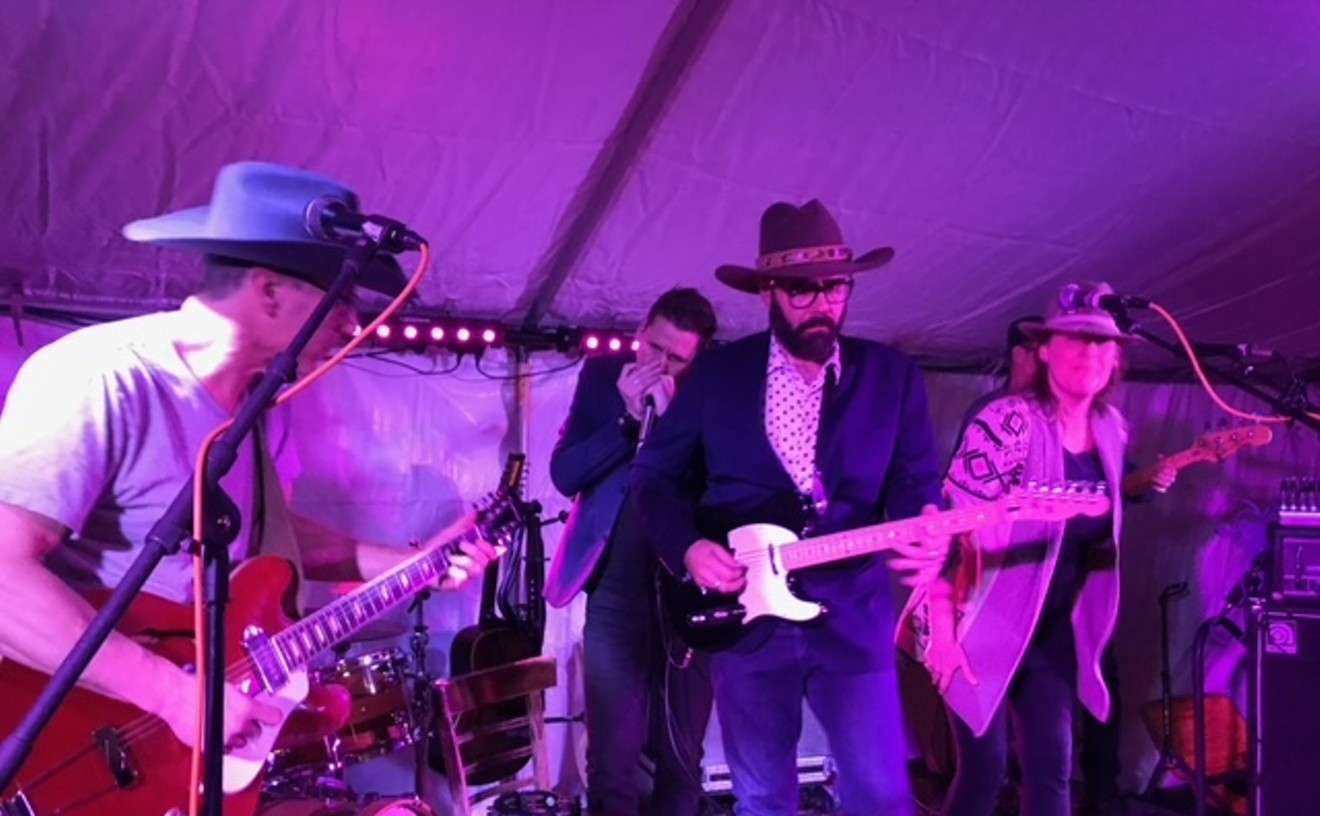"Roots music means a lot to I," Porter says through a thick Jamaican accent. "Because within roots music is the food of life. Once it gets into you, it really takes hold."
Porter was caught as a child in reggae's grip. "I started out singing in different concerts in school and in different parish festivals," he explains. "My mom was very religious and into Pocamania, a religion that is practiced in the hills where I grew up. In it, you have a lot of drums and stuff like that--African drums. And people beat those drums all day sometimes and sing, praising the Almighty in different ways. So my mom was into the Pocamania thing and I got a lot of influence going to church with her. And the music of Pocamania influenced all reggae music at that time."
Future Itals Ronnie Davis, Lloyd Ricketts and Porter were still kids when they made their first recordings; during the early Sixties, they appeared on several ska and rock-steady hits, including the Tenors' "Ride Your Donkey." Soon thereafter, Porter, Davis and Roy Smith teamed up to form the Westmorlites, the group that led directly to the Itals. "We started out at about seven years old," Porter recalls. "The music was in Iman from the time I was little. I listened to people like Alton Ellis, Peter Tosh, Bunny Livingston and, you know, Bob Marley. I get a good influence from those people because they talk about culture. Roots music, you know?"
These inspirations can be heard in the three-part harmonies that have distinguished the Itals from the start of their career. The artists also taught Porter the importance of message-laden lyrics--a hallmark of roots reggae. "I and I have to stick with the cultural things in my music because that is what people need to hear," he notes. Certain themes--survival, captivity, maintaining faith--crop up again and again in the Itals' catalog, and many lyrics echo Biblical phrases.
The group's first album, released on one of Jamaica's independent imprints, appeared in 1976. The material's rural flavor and reverent singing (voiced mostly in thirds and fifths like the Methodist and Baptist music of Jamaica) won them immediate acclaim in their own country. American companies took a little longer to catch on; Brutal Out Deh, the Itals' U.S. debut, wasn't issued until 1982.
Four more Itals albums made their way into stores during the Eighties, including 1987's Grammy-nominated Rasta Philosophy. According to Porter, the spirituality that infuses each of these discs is a key to the act's longevity. "It's very important to I that the message always be in the music, because that's what people are listening for," he explains. "As soon as you hear the beat you start dancing, right? Then when you're dancing, you want something else to be doing, like listening to the lyrics. Then those lyrics hit you. And the lyrics is the teaching. The lyrics gonna curve our whole generation together if we all listen."
This opinion is not universally held among members of the contemporary Jamaican music scene. Dancehall performers especially have eschewed preaching in favor of what some claim is the glorification of sex and violence. Porter does not specifically decry dancehall, but he voices his hope that its popularity will not entirely siphon the audience for other types of reggae. "The music is always changing beats," he says. "But I and I keep the same cultural lyrics, the same message that people want to hear. No matter how the beat might change, whether it gets faster or has more instrumentation, you should listen deeply and the message is still there."
The Itals most recent long-player, 1991's Easy to Catch, is an example of this philosophy. The platter's production, marked by programmed drum kits and dub effects, is slicker than before, but the clarion harmonies of Ricketts and current Itals Porter and David Isaacs ring clear and proud. That's particularly true on the Bob Marley cover "Could You Be Loved," which features the vocal backing of Marley's original I-Threes (Rita Marley, Judy Mowatt and Marcia Griffiths).
Given the strength of cuts like this one, Porter isn't worried about the Itals' continuing viability. "The roots music is not disappearing because of dancehall, because you could never have the branches without the roots," he insists. "And all of the music like dancehall is a branch of the roots music, because all things grow from the roots. We could never lose the roots--so Iman not afraid. Reggae music can never die."
The Itals, with Andrew Bees. 9 p.m. Saturday, March 9, Fox Theatre, 1135 13th Street, Boulder, $10.50, 447-0095.










